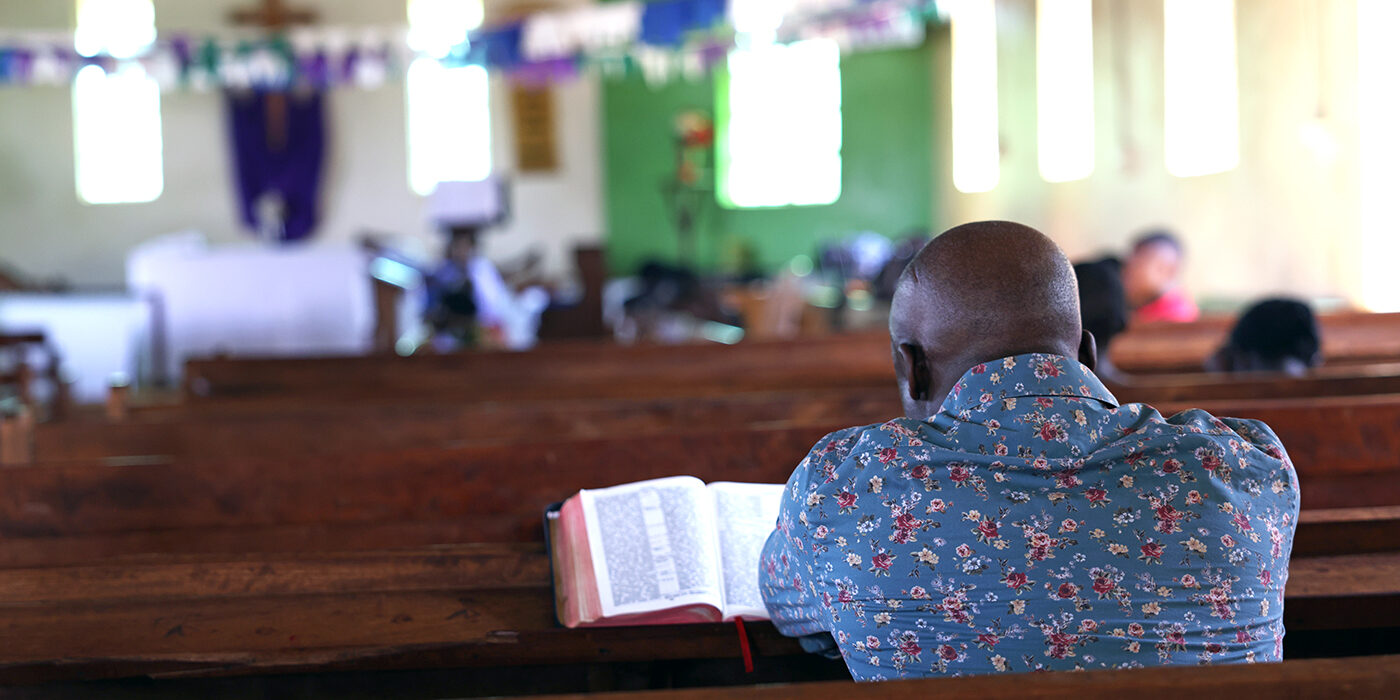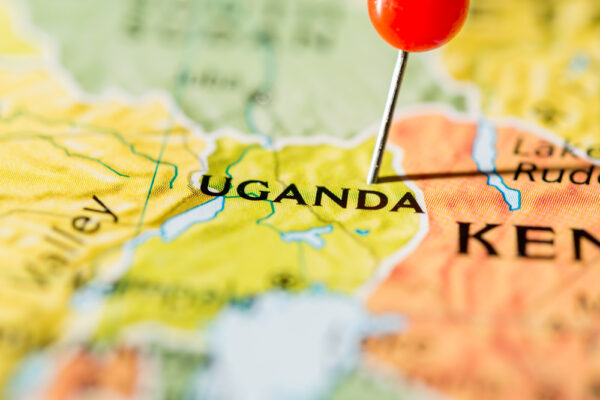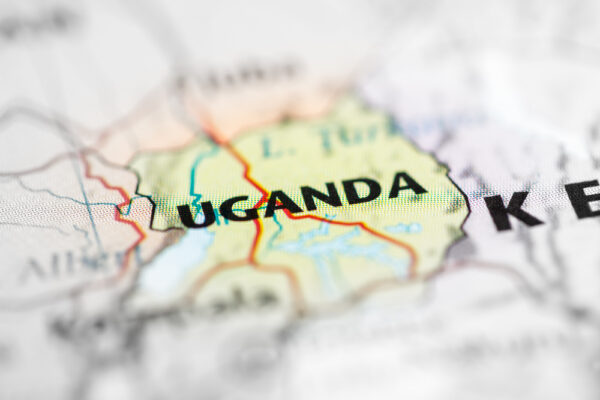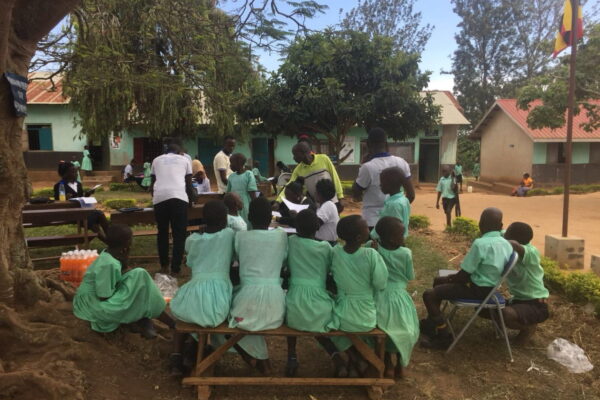Eleven-year-old Fred Ssewamala dove under his bed. His mother had died when he was 3, and now soldiers with guns were crashing into his house. They shot his father and his stepmother, then his brother and his pregnant sister. Huddled under the bed with Fred was one of his playmates, a little girl age 8. Once the soldiers had killed everyone they could see, they dropped their automatic rifles to their hips and sprayed bullets everywhere, even under the beds, killing her, too.
“I was lucky,” Ssewamala says, “and I do not use the word lightly.”
He went to live with his aunt and uncle, an eight-hour drive from his village. In the new place, he told no one that he was an orphan — a word Ugandans use to refer, with distaste, to desperately poor children and often street beggars. His best friend in high school found out on graduation day, and he never told his girlfriend.
Encouraged by a bevy of aunties and impressed teachers, Ssewamala figured he had gotten past not having a mother. But when he received a scholarship to Makerere University — the oldest and most prestigious institution of higher education in Uganda, accepting only the best of the best — there was no mother or father there to burst with pride. Other freshmen were always opening care packages from their moms, but he received nothing. There were no parents beaming from the audience as he walked across the stage to accept his diploma. When he was awarded a graduate fellowship at Washington University’s Brown School, nearly his entire village came to the airport to send him off — but he had no mom to hug him breathless.
“You cry on the plane,” he says quietly, shifting out of first-person to distance the ache.
As he studied social work, he realized it was about more than doing good; there was knowledge and theory behind it. Michael Sherraden, the George Warren Brown Distinguished University Professor and founding director of the Center for Social Development, and Mark Rank, the Herbert S. Hadley Professor of Social Welfare, both of the Brown School, taught him how to conceptualize, how to tackle social problems effectively, how to think about poverty and what breaks its spiral. “Don’t just give out cash,” he learned. “Partner with the communities and the families. Make sure there’s buy-in, and then give them the financial literacy and training that they need. Connect them to financial institutions. If you give someone money and they spend it on food, the bank still knows nothing about them. But if they invest, and you invest in their financial future, you’re enabling them to grow into productive members of society.”
Ssewamala earned a doctorate from Washington University in 2003 and immediately joined the faculty of Columbia University in New York, where he rose through the academic ranks to full professor. In 2017, he returned to WashU as the William E. Gordon Distinguished Professor in the Brown School. He is now associate dean for transdisciplinary faculty research, and he directs the International Center for Child Health and Development (ICHAD), which celebrates its 10-year anniversary in April 2023, and the SMART (Strengthening Mental health And Research Training) Africa Center. He also holds an appointment at the School of Medicine as a professor of medicine in infectious diseases.
But that is getting ahead of the story.
“When they say ‘It takes a village’ here, people think that is a made-up thing, but it really takes a village. That community, where you don’t belong to one family but to an entire village — that is what informs my work.”
Fred Ssewamala
By the time Ssewamala made his first trip back to Uganda (in 2000, between receiving his master’s degree in 1999 and beginning his doctoral studies), some of the kids he’d looked up to in his village were dead of AIDS. The biggest shock was in Kampala, where he saw teenagers begging on the streets. So many had been orphaned by HIV that their extended families — Uganda’s only real social safety net — were overextended and had closed their doors.
These kids felt even more stigmatized than he had; many were HIV-positive themselves, since birth, and the rest were scorned because, obviously, theirs was “not a good family.” Cut off from respectable adults, they had to fend for themselves.
Ssewamala thought back to all the warm support he’d received. Only as an adult had he realized that many of his “aunties” were not blood relatives. “When they say ‘It takes a village’ here, people think that is a made-up thing,” he remarks, “but it really takes a village. That community, where you don’t belong to one family but to an entire village — that is what informs my work.”
He spent his doctoral years planning his first project: “That’s when I started leaning on what I had learned at WashU, because if those families were more economically stable, they would never have allowed those kids to be on the street. That’s not Ugandan and, frankly, that’s not African. So if that social fabric is no longer strong, there must be a reason.”
The kids had no desire to live on the street, so he wouldn’t start with them. He’d go to their villages, find their families and tell them, “Look here, we are going to support you with those kids.”
“That’s how I designed my entire research enterprise,” he says now. “Meet people where they are and start infusing resources. You change the dynamics of the household. People start to think about the future differently. You create hope.”
The word for hope in Luganda (one of the major languages of Uganda) is suubi. To date, Ssewamala and his team have created at least 20 projects, intervening and studying what works. Among them are M-Suubi (for HIV-positive children in boarding schools and their caregivers, teachers and clinicians); Suubi4Her (to keep girls in school); Suubi for Cancer (for young people living with HIV with suspected and confirmed cancer diagnoses); Suubi4Stronger Families (for young people with behavioral difficulties); Suubi+Adherence, Suubi+Adherence4Youth (also known as the MOST study) and Suubi4Stigma (all focused on young people who are living with HIV/AIDS); Bridges to the Future (for orphaned youth); and Kyaterekera (for economically vulnerable women).
Already, the work has changed the future for over 70,000 children and their families.
Breaking several cycles at once
One variable unites all Ssewamala’s projects: stigma. The stigma of being an orphan — which doubles when the cause is HIV. The stigma of poverty. Of sex work. Of domestic violence. Of cancer. Of alcoholism. Of mental illness.
One problem underlies all the rest: lack of resources. Without money to pay for tuition, families marry their daughters off at 13, and sons wind up eking out a subsistence by tilling their parents’ land. Without education, myths and superstitions persist, mental illness goes untreated, HIV rages on, and hopelessness sets in.
Thus, Ssewamala’s studies nearly always include matched/incentivized savings accounts, peer mentorship, financial literacy classes and training that helps families start home enterprises — growing a market garden, raising chickens or livestock, beekeeping, knitting sweaters.
It’s working.
“We were used to handouts [from overseas], something that was not sustainable,” says the Rev. Father Kato Bakulu, who now has parishioners waving their bank statements at him: “Reverend Father, is it true? We saved so much?!” For years, he says, “We had a mentality that poor people cannot save. When supported, even poor people can save for a noble cause.”
And though they own these accounts outright and know the money is theirs to spend as they choose, they are using it nobly: for their kids’ tuition.
John Ssentume, head teacher at Kyotera Primary School, has seen additional benefits: “Parents learned to write their names because they have to sign on the accounts,” and they also learned that “banks are not only for the rich.”
Growing up in the tiny village of Namulonge, located approximately 20 miles northeast of Kampala, Ssewamala never realized that he was poor. Why would he, when anywhere he walked, he could find a ripe mango or papaya to pick, a whole pineapple or stalk of sugar cane to nibble on. Agriculture is a little more organized now, but that sense of abundance remains. And because kids don’t have iPhones or even computers in their classrooms, they’re not restlessly comparing. The first time they feel poor, he says, is when reality clashes with what they expect — when they are told, for example, “Your parents did not pay tuition.” Even the government schools in Uganda charge a fee (and serve a cup of porridge for lunch). Yet school, most kids realize, opens possibilities.
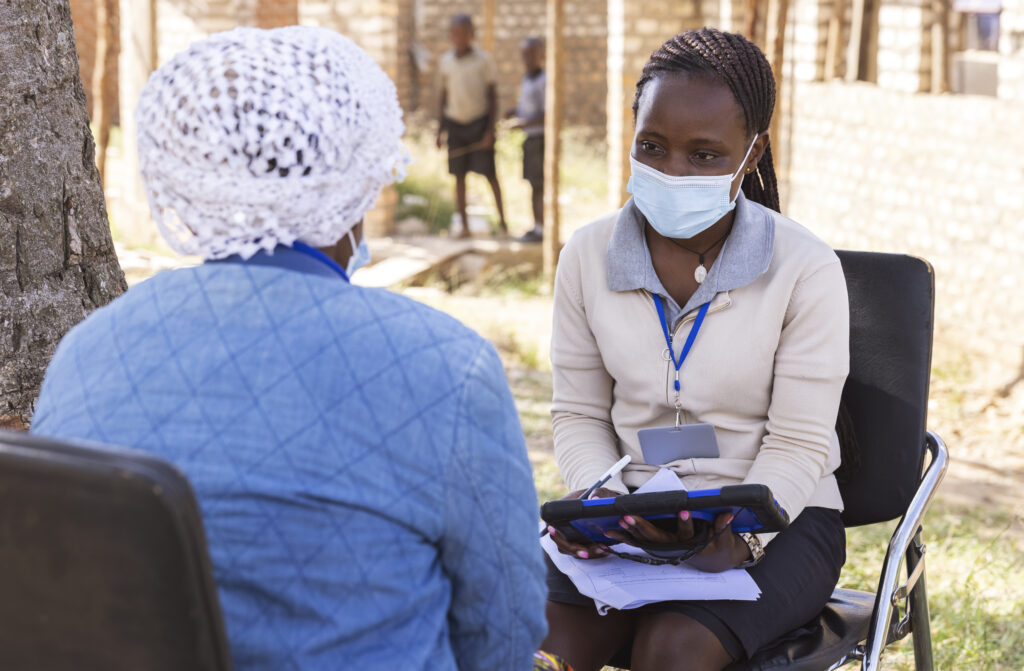
Where HIV began
Two-thirds of all the people living with HIV live in Sub-Saharan Africa. In Uganda, more than 170,000 adolescents live with HIV. Many were orphaned by HIV. Scientists believe the infection first broke out in the region around Lake Victoria — where Masaka is, and where Ssewamala chose to concentrate his projects. For years, the virus went undetected here, spreading like an oil spill, infecting men and women, spouses and unborn children. Despite years of public health education, “There are still people who believe mosquitoes can carry it from one person to the next,” he says ruefully. The fear of contagion is irrational (parents refusing to let their kids play with kids who are HIV-positive or those whose parents died of HIV, for example), and the moral disapproval is sharp, tainting even children who contracted HIV in utero.
Masaka is a region of contrasts. In small fishing villages at the lake’s edge, commercial sex work flourishes, and the fishermen insist that supplied condoms are too small or flimsy for their manhood. Elsewhere, the region is heavily Catholic and far from Kampala’s urban influences, so the families are strict and the young women are desired as brides.
Those contrasts have made HIV both more prevalent and more shameful. Yet as Ssewamala points out, “The same way COVID devastated low-income families, HIV has devastated low-income families.” But a higher HIV rate doesn’t mean people are more promiscuous than they are elsewhere; rather, it means that poverty doesn’t allow them to access the same sort of education, preventive measures such as condoms and other protections, testing, treatment and care. Often, the children born with HIV are not even told they are infected: “They’re abundant with the disease,” he says, “but their caregivers fear disclosing it to them because they don’t have the answers if a child asks, ‘How did I get this?’”
Economic empowerment also has made a huge difference … “the children did better. We saw better adherence to medication and treatment. And we saw that the virus reduced in their blood.”
Fred Ssewamala
Children’s caretakers often choose the farthest clinic for care, so no one will know them — but then they cannot find transport, so their clinic visits are not regular. At the start, they often “come late or want to hide and let the children come in alone,” notes Margaret Namuddu, clinic manager at Villa Maria Hospital. But with encouragement, that changes, and the young people stop shying away. “There is something ICHAD has put in them,” Namuddu says: “‘You know, I’m not the only one with HIV.’”
By following kids over many years, ICHAD has made it possible for health clinics to stay in touch. “ICHAD might be looking for me,” the young people say. Consistent appointment times let them befriend and take courage from other kids at the clinic, and they also see responsible, respectable adults who are living well with HIV.
Economic empowerment also has made a huge difference: After infusing resources into these households and partnering with the families, “the children did better,” Ssewamala says. “We saw better adherence to medication and treatment. And we saw that the virus reduced in their blood.”
Another program focuses specifically on children in boarding schools because the schedules are rigid, and students who need to go back to their rooms for their HIV medication often cannot find a way. Or they cannot find a way to take the medication with food, so it makes them throw up and they stop taking it. Teachers sometimes resist accommodating them, too; one asked Ssewamala, “Why are you wasting your time with kids who are going to die?”
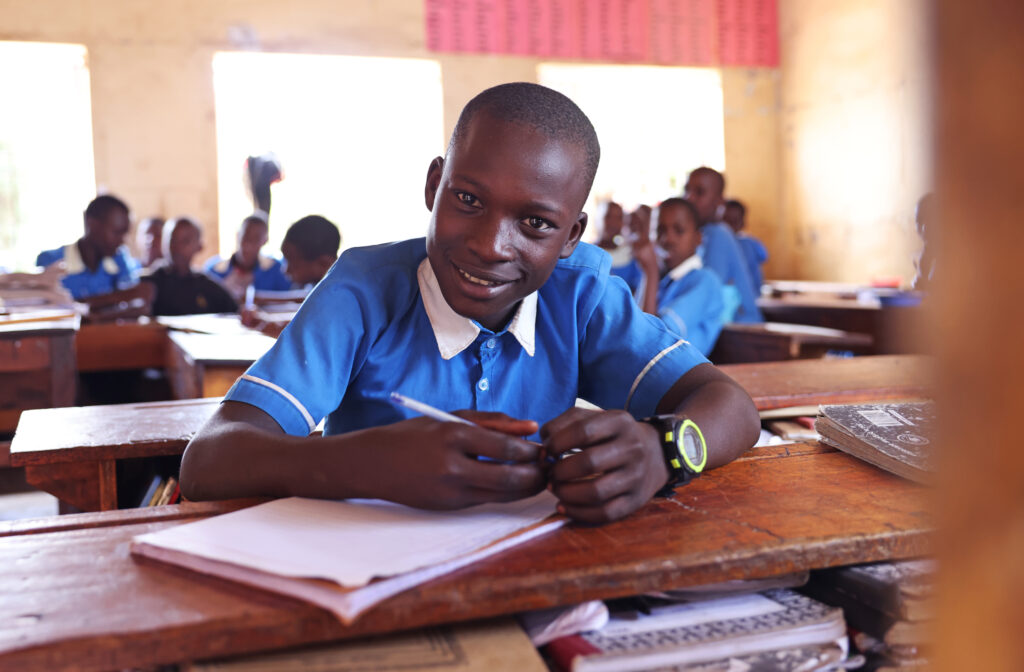
The illness no one acknowledges
Ugandans might be willing to take medicine for mental illness — if they believed there were such a thing. Right now, few do. What we call mental illness is seen either as a bewitchment or, in the case of a child, a stubbornness that must be punished. There is no word for depression in the Luganda language, Ssewamala says. “Everyone would be depressed, frankly. Poverty, HIV, we have everything that would cause depression!” And what good would it do to rethink, some might say, when there are so few psychiatrists, therapists and treatment centers? Kids whose behavior is sufficiently extreme are pulled away from home and institutionalized. Otherwise, the behavior is simply punished, and adults reassure one another that the child “will outgrow it.”
A recent systematic review estimated that one in seven children in Sub-Saharan Africa struggles with a serious mental health issue. But again, there is stigma, and little by way of governmental policy, services or resources. The SMART Africa Center, based at the Brown School, looks at the influences of the state, nongovernmental organizations, families, schools and community, exploring ways to offer and assess care. Using data from more than 2,400 Ugandan caregivers, the center found significant numbers of children with oppositional defiant disorder or conduct disorder — the risk heightened by the death of parents, large family sizes and insufficient supervision.
SMART Africa also mentors young people to develop interest in psychiatric research and therapy, and trains community health workers to recognize and triage mental illness.
The pipeline
Ssewamala makes seven or eight trips to Uganda each year. When he comes back to the States, he doesn’t miss boiling water even to rinse his teeth, sleeping in a tangle of mosquito netting that’s curtaining off malaria, flipping a switch and no light coming on, or trying for hours to get online.
But he does miss the lush greenness (temperatures stay between the 60s and the 80s year-round) and, oh, the food! “Matooke, steamed green bananas. They take their taste from the gravy you dip them in. Having that one together with peanut sauce mixed with fish … or chicken cooked the local way, in banana leaves …” He also misses the 60 passionately engaged Ugandans who are doing field work and research for him, he adds, abashed to not have put them first.
“This is the generation that is going to change the country.”
Fred Ssewamala
What he has created is capacity, on the ground, independent of him, self-sufficient. And part of that capacity-building is a pipeline that will bring Uganda more and more highly educated professionals across many fields. He runs four different training programs, supporting master’s, doctoral and postdoctoral students as they learn to research HIV, mental functioning and global health. “This,” Ssewamala says, “is the generation that is going to change the country.”
And the reason it will work is that he started when they were all much younger.
“You can’t build capacity with doctoral students,” he notes. “You have to start with high school students. You get them interested in research, in giving back to their community, and then you work with them, train them to do research. They go to the university, they come back to volunteer, and you encourage them to apply for a graduate degree. You don’t train them to work for you; you train them to be good scientists on their own.” He will ask them, “What do you want to do two years from now?” and if he hears, “I want to keep working for you,” he slams back: “No!”
The saying among the young people in Uganda is, “If you want to make Professor Fred happy, tell him you want to go back to school.” He grins at this, then turns solemn: “What has made me who I am is education.”
By now, Ssewamala has mentored hundreds of young people. He rattles off name after name, tells stories that make your heart ache and then describes triumphant PhDs and faculty appointments around the world. His consistent advice? “Believe in yourself. If anyone tells you something can’t be done, tell them to get out of your way.”
Nanyanzi Maltina, a former participant of ICHAD’s first study, has heard exactly that for the past decade. “Every time I told Dr. Fred, ‘This is what I want to do,’ he never let me down, nor did he ever tell me, ‘You know, that is impossible,’” she told WashU videographer Tom Malkowicz, who accompanied Ssewamala on his most recent trip to Masaka. “He would tell me, ‘We are proud of you. You can make that!’ I didn’t want to listen to other voices that literally make noise when there was only one person who understood my circumstances and said, ‘That is possible. Go for it!’ So I have to pursue it, so he can be really proud of me.”
When Maltina first joined an ICHAD study at 10 years of age, she told herself, “‘Now I must take all the opportunities around.’ So I made my heart open. When they asked me, ‘How is this hurting you?’ I told them everything.” No one gasped. No one judged her. “They told me, ‘Things are going to be well for you. This is not the end of life.’ So I never dropped out of school at any moment.”
Ssewamala first took an interest in Maltina because she was brilliant (she did a doubletake when he told her so — “Brilliant?”). But she had lost her mother, and money was a problem.
“My worry was, if the project doesn’t continue supporting her, she may be married off by age 13,” Ssewamala recalls. He kept her involved, even funded her travel to a New York conference where she spoke about participating in ICHAD studies. And when she was ready, he hired her as one of the research assistants. Now she is in college, studying accounting and finance, and she says a law degree (her first interest, but too expensive) will come next. “We shall be out of our comfort zones to make you prouder,” she promises Ssewamala, “and to make the entire world proud of us.
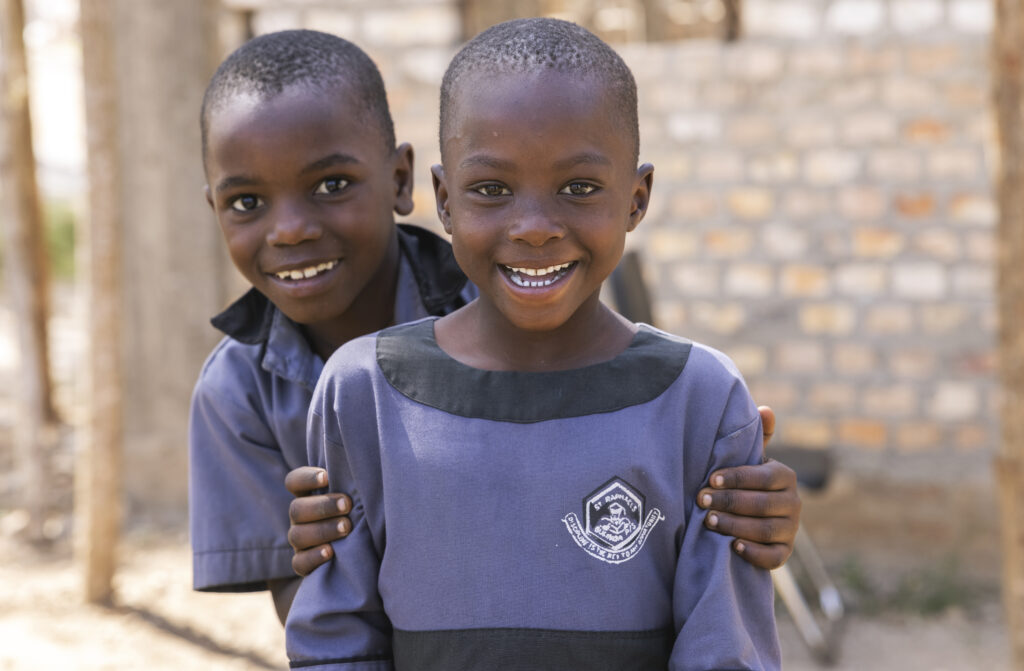
It is time the world took an interest. “Most of academia’s work is in the global south,” Ssewamala points out, “yet most of the authors are from the global north. How do we promote south-to-south collaborations, where people are documenting what works and doesn’t work in their own countries?” He answered his own question with a new, precedent-breaking textbook: Child Behavioral Health in Sub-Saharan Africa. Co-edited by Ssewamala and two colleagues at the Brown School — Mary McKay, the former dean (now vice provost for interdisciplinary initiatives at the university) and Ozge Sensoy Bahar, research assistant professor — the book focuses hard on this understudied region and highlights the work of researchers who live and work there.
In another coup for academe, a network of partnerships has formed. Ssewamala is WashU’s ambassador to his first alma mater, Makerere University, which joined Washington University’s McDonnell International Scholars Academy network in 2020. Already five fellowships have been awarded to Makerere scholars, and five research collaborations have been established. Other grants will provide for U.S. scholars to be trained to go to Sub-Saharan Africa and learn what is happening there, and for Ugandan scholars to come here and learn.
The cultures of the two universities are very different, so Ssewamala does a lot of smoothing. In Uganda, a professor is king; here, professors and grad students collaborate as equals. Here, a scholar has instant access to a wealth of research material; there, “it takes forever for them to find what they need” — yet they have invaluable context and direct experience. The sharing goes in both directions.
People will surprise you
Proscovia Nabunya, now co-director of ICHAD, was in her second year at Makerere University when she met Ssewamala. He had asked a parish priest to help him find an undergraduate student (the only help he could afford) to coordinate his first research project in Masaka.
Nabunya came highly recommended, so they met for breakfast in Kampala. When he described his project, her brow furrowed at the notion of a matched savings plan. “What is the benefit to you?” she wondered but did not ask; she wanted this job. “I’m in,” she told him.
When Nabunya accompanied Ssewamala to the Uganda National Council for Science and Technology office that had to approve his study, she could barely keep up. He had lived in the United States, and he walked very, very fast. In Uganda, people strolled. Arms and legs pumping, she finally caught up.
The project opened her eyes: first, to the importance of doing research, gathering usable data; second, because of her background, which was similar to that of the children they were studying. She, too, was an orphan. She lost her mother, a schoolteacher, at age 11, and her father, an Anglican priest, five years later. And then she learned from a family member that they had both died of AIDS.
“When you give people the opportunity, they will surprise you.”
Proscovia Nabunya
Now, looking at the support the program offered, she thought, “I wish I’d had somebody to do that for me!” Matched savings accounts were making a difference: She heard kids making plans for their future, sounding bright and eager. “When you give people the opportunity,” she realized, “they will surprise you.”
When she was young, Nabunya overheard a relative tell her father, “I would rather spend money on fish than send a girl to school.” An uncle who thought differently paid her high school tuition. When it came time to sit for exams to go to the university, though, she knew she had to get a scholarship because he could afford no more tuition. “These exams are your father and your mother,” he told her, giving her a way to see that they could take care of her. “If you fail, you are done.”
She didn’t fail. She graduated and went on to earn a master’s degree in social work from Saint Louis University and a doctorate from the University of Chicago, and then she did postdoctoral work at New York University. Now an assistant professor in the Brown School, she works closely with Ssewamala and is the principal investigator for Suubi4Stigma, to better understand the fear of contagion and the moral judgment and how to address it. As a teenager, she had been blissfully unaware of her own circumstances, thus free of that stigma. Now it shocked her.
“These are children!” she kept thinking. “And they remind me of me.”
Haunted by the pain they poured out to her, she decided to see if interventions could ease stigma not only for the children but also for their caregivers, who were automatically stigmatized just by proximity to them. To strengthen children against social disapproval and distancing, the program uses cognitive behavioral therapy — but in group form, because there are not enough therapists and there is not enough money. For caregivers, there is a support group for multiple families that lets them share lived experiences and coping strategies, and learn ways to improve communication and social support.
As she pores over the interviews, though, Nabunya is questioning her initial assumptions. “Is it stigma or shame? Here I was thinking, ‘Oh, it’s stigma — stigma, stigma, stigma.’ And I found that it is shame,” she says. “They’re between 10 and 14 years old, and they feel ashamed. It’s heartbreaking.” Nearly always, the HIV was inherited, not the result of their own behavior. Yet they have taken on a sense of unworthiness. “That tells me,” she says briskly, “that in my next study, I have to address issues of shame.”
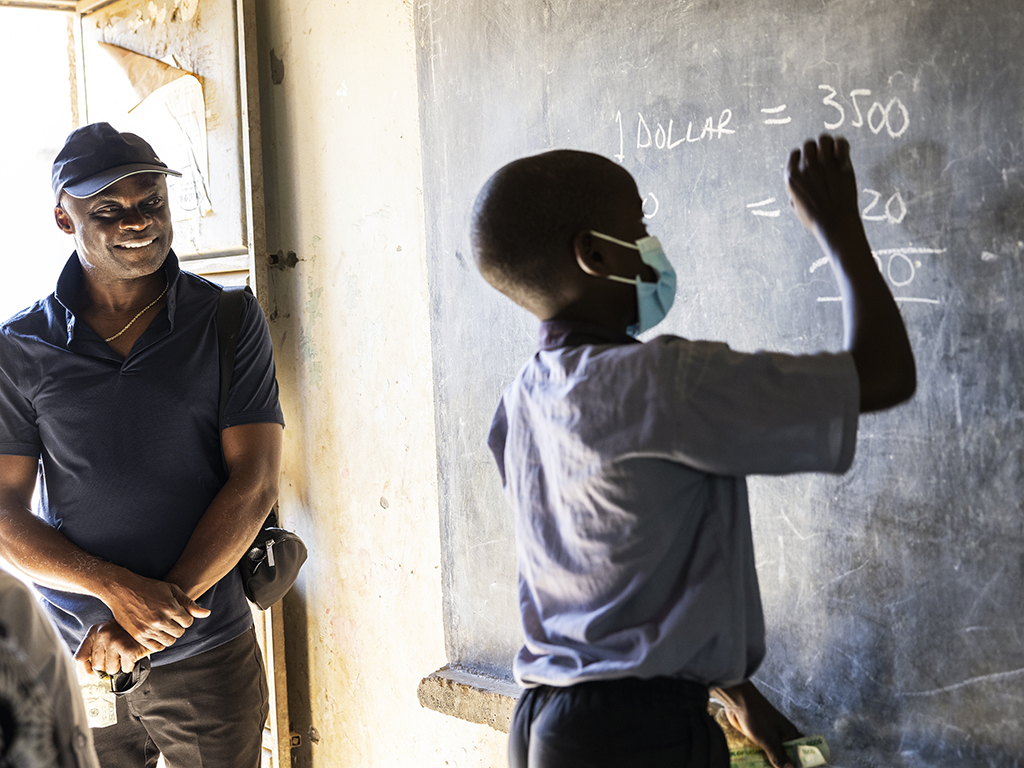
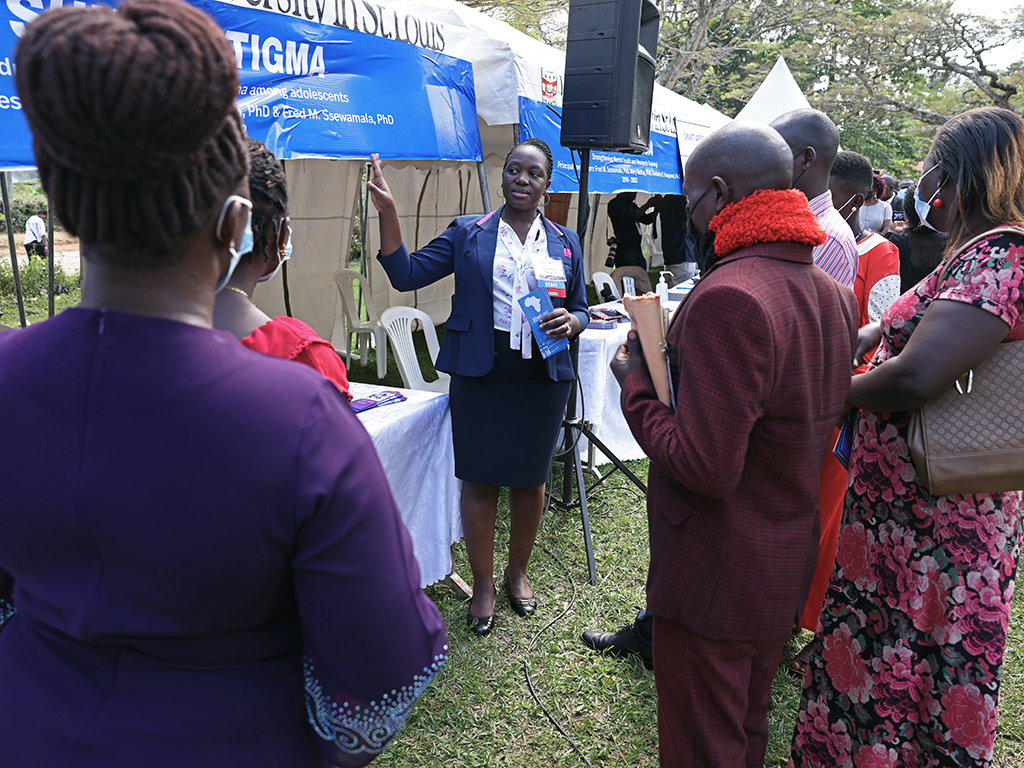
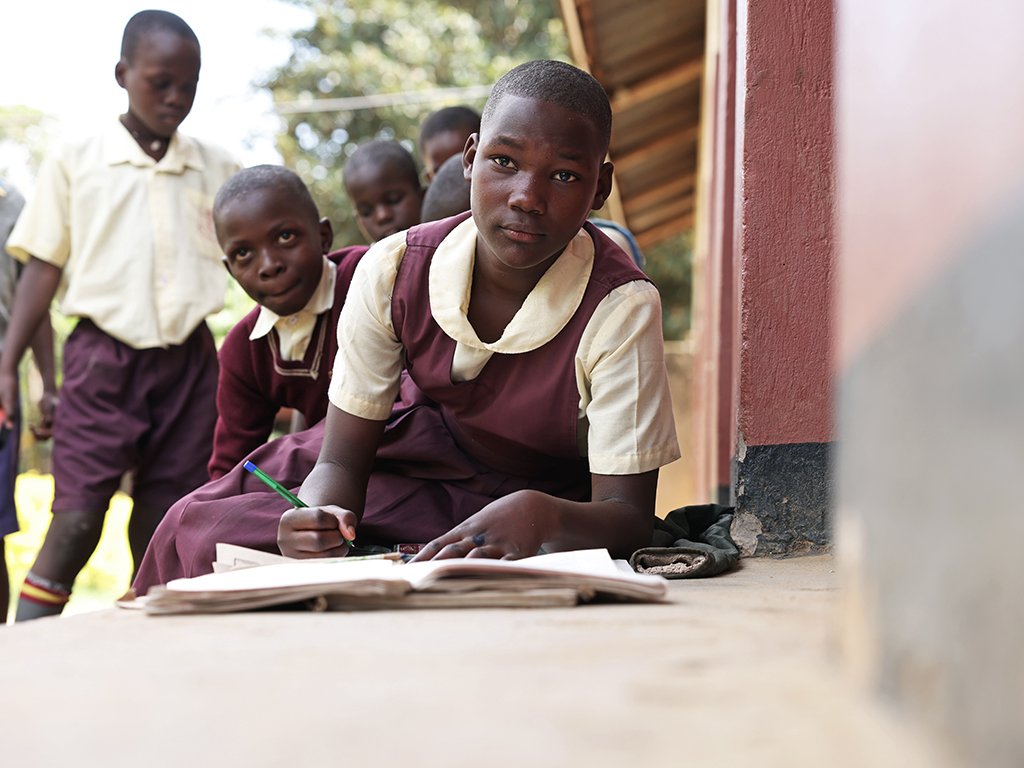
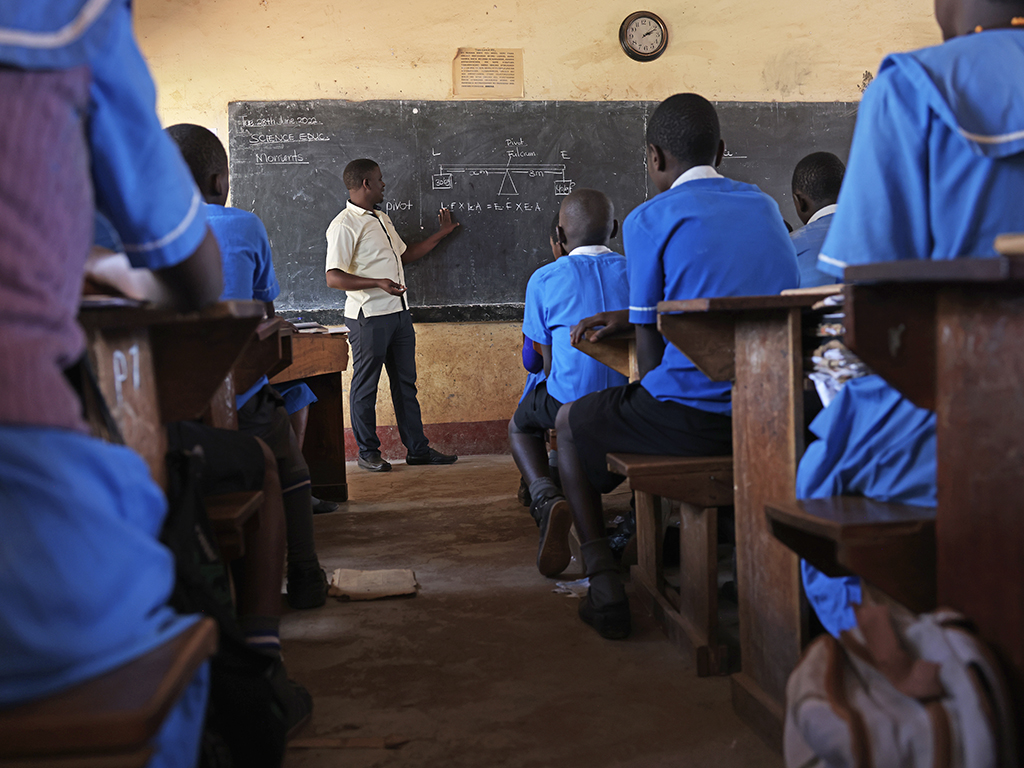
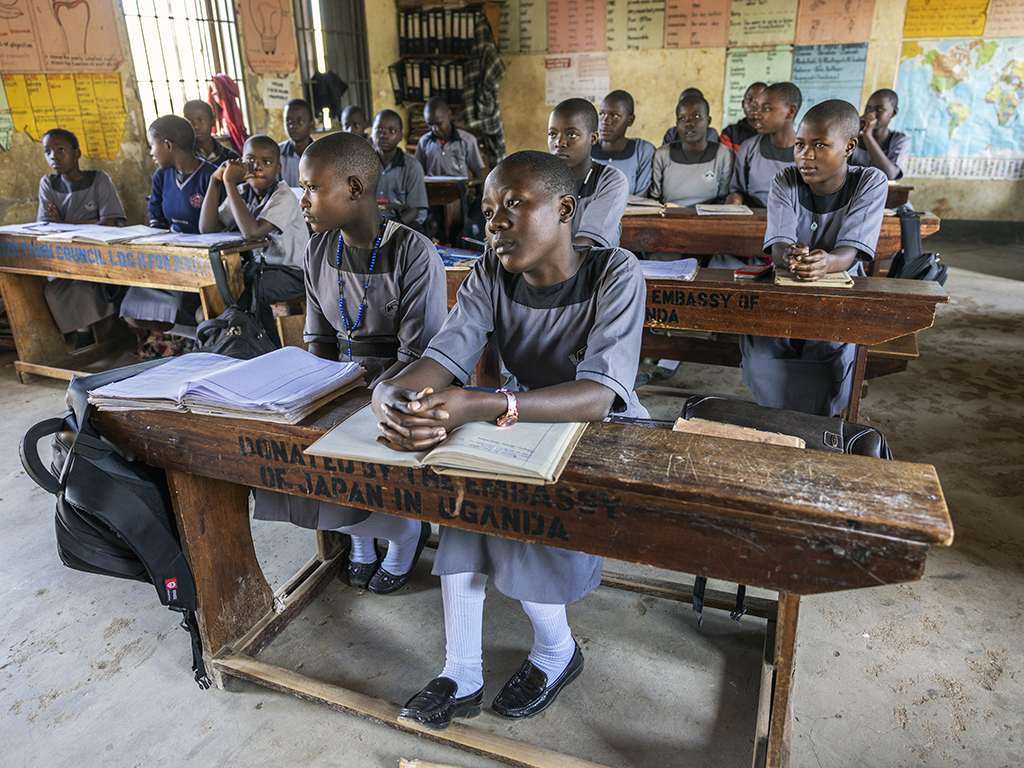
What makes change stick
So many programs have great outcomes until they end, and then bad habits snap back into place. That’s why a big part of Ssewamala’s work is not just designing interventions but appraising them afterward, measuring long-term outcomes. His two-part Bridges to the Future study used economic empowerment (matched savings, microenterprise, financial literacy and peer mentorship) to discourage kids orphaned by HIV from risky behaviors and encourage them to stay in school. The study carefully measured its own outcomes: Participants had more correct HIV knowledge, better prevention attitudes, better school performance, a higher rate of transition to post-primary schooling, higher savings, less food insecurity, more family enterprises, better self-rated physical health, less depression and hopelessness, and stronger self-concepts. In other words, his ideas are working.
Just how, through all his programs, is he making sure these new habits and goals stick?
Ssewamala’s first brainstorm, the matched savings account, changes an entire family’s outlook, builds trust in what they are learning and instills hope. Knowing that tuition can be paid, caretakers do not rush to marry off the girls or pull kids out of school to do labor.
“Especially in my tribe [the Baganda], they teach you to save for the future. If you plant corn, you save some seed for the next season. So we are building on things the family has already been taught.”
Proscovia Nabunya
Money alone is never sufficient, though. Families are taught financial literacy, and the new information meshes with cultural lessons they have already learned. “Especially in my tribe [the Baganda], they teach you to save for the future,” Nabunya explains. “If you plant corn, you save some seed for the next season. So we are building on things the family has already been taught and giving that extra push.”
The research assistants are people these families know, people they can relate to. “Get people to engage with people who are similar to them in several ways,” Ssewamala urges. On his last trip, he was tickled because the young people now “want to talk to ‘Proscovia’ even more than to me, because not only is she Ugandan, but she is closer to them in age and is a woman.”
“They do,” Nabunya agrees with a wide smile, “and I like it.” The first adult she ever came to know who had been to college was Dr. Fred, and he changed her life. Now, she mentors anyone she can.
Community is strong in Uganda, and that helps, too. Parish priests helped Nabunya reinforce the teachings in that first program she coordinated. One woman offers this feedback after participating in Suubi4Stigma: “Since we have remained with the handbooks and have gained knowledge, I will continue sharing with my neighbors about the skills in making our families happy.”
Designing studies that span multiple years helps: “I want to meet you where you are and help you get somewhere you want to go,” Ssewamala says, “and this can’t be done in one day or one year.”
Repetition helps, as do frequent lessons and meetings, and monthly bank statements. “You are changing their way of thinking. You can’t just do something once and that’s it.”
Clarity and strong messaging help, so ICHAD held a workshop to help develop culturally relevant, age-appropriate signage and visual messaging that explains mental health and dispels stigma.
More than a decade of field work has shown Ssewamala and his team how to refine their interventions and their data collection, how to study their studies, how to find what works. Now he is sure: “We can make a difference in the lives of these young people.”
